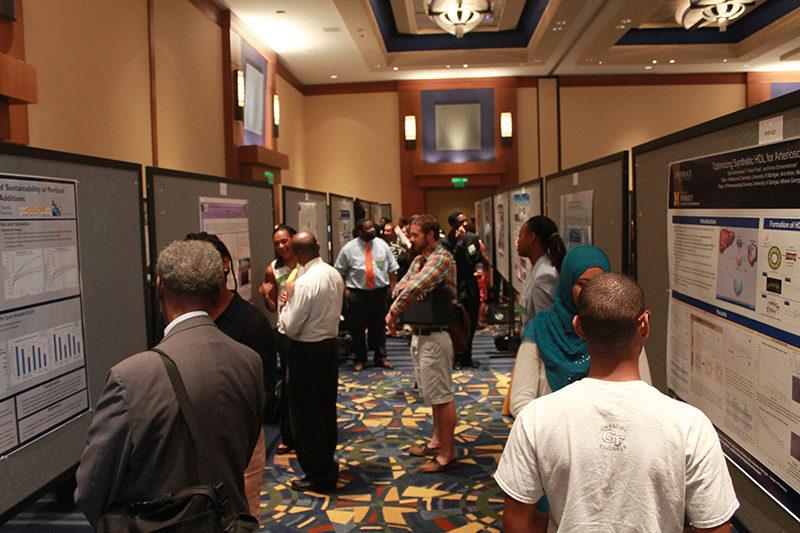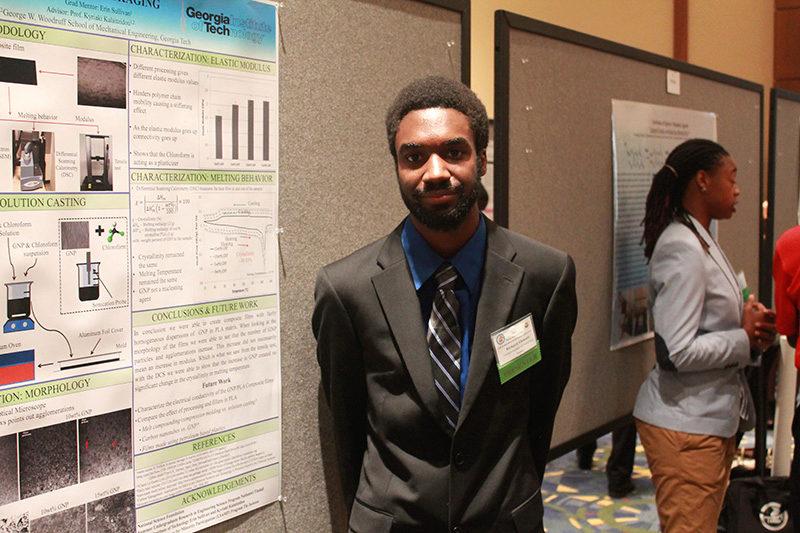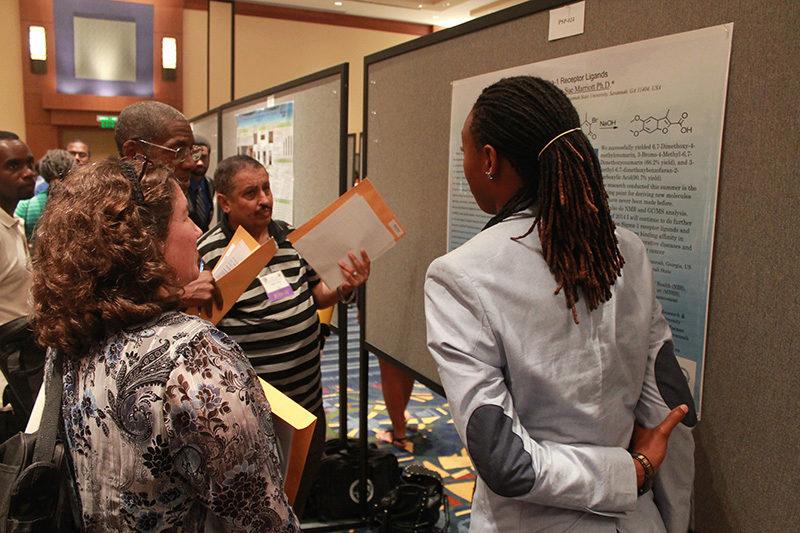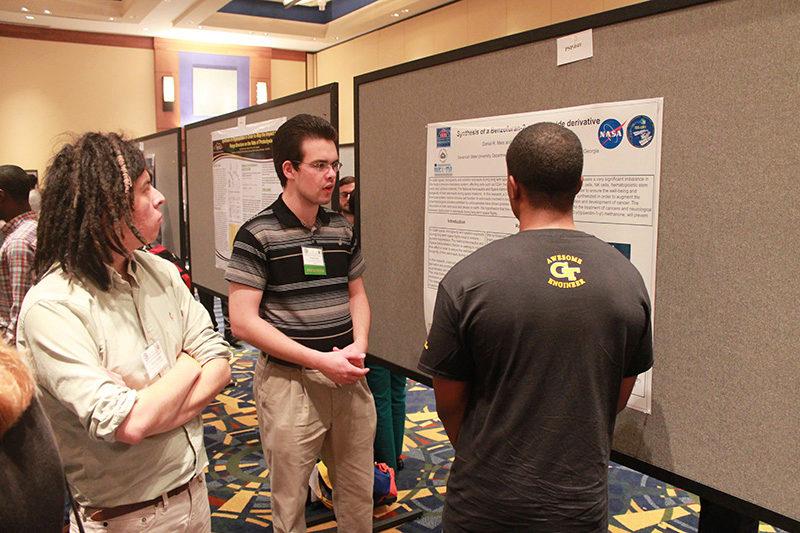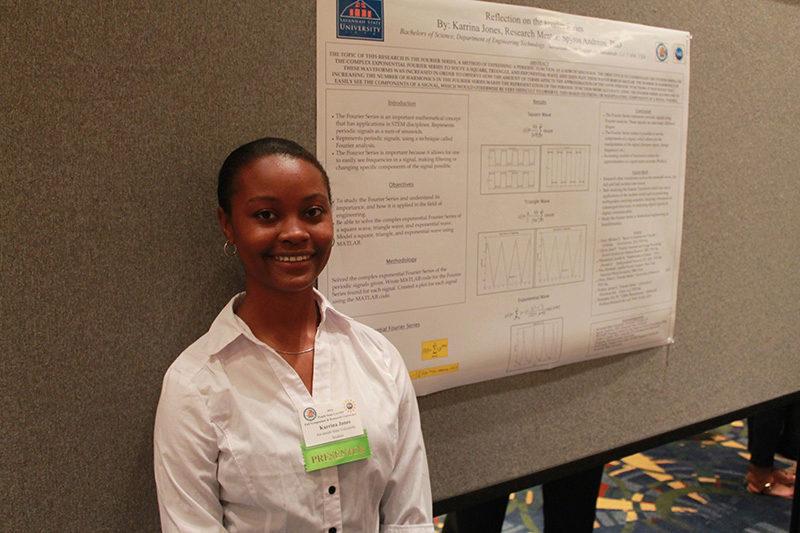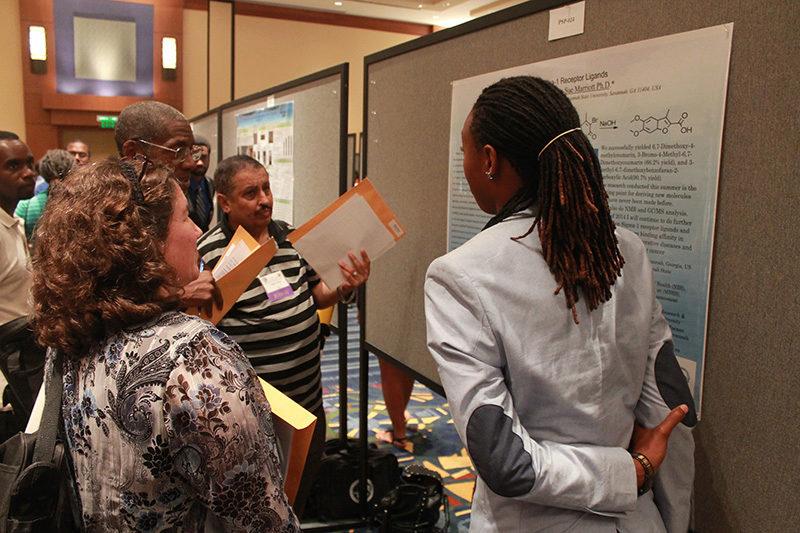
From September 19-21 Georgia Tech hosted the 9th Annual Louis Stokes Alliance for Minority Participation (LSAMP) Fall Symposium and Research Conference.
More than 400 STEM students took part in the three-day event at the Georgia Tech Hotel and Convention Center, coming from all over the state to show off their research projects.
Participants presented their research to faculty judges, heard from distinguished speakers, and the opportunity to attend an exhibitor fair which included numerous graduate schools, government agencies, corporations, and businesses, which were on site to recruit students and expose them to opportunities in their respective programs.
LSAMP is a National Science Foundation funded initiative that seeks to increase the number of underrepresented minority students who complete science, technology, engineering and mathematics (STEM) baccalaureate degree programs and matriculate into programs of graduate study.
Savannah state student Karrina Jones remarked that the LSAMP conference was her first foray into undergraduate research.
“The research has let me see if I really like what I'm studying, and that's important to me,” she said. “It also opens a lot of doors for me. One research project leads to more research, and if I can collaborate with a school off campus it could get my foot in the door to join their grad program.”
Georgia Tech MSE major Richard Flowers was also introduced to research by LSAMP, as well as SURE.
“Before this program I didn't even really know what research was. I knew it existed, and that it was something people do, but I had no idea how it worked. Then I was encouraged to apply to the program, and sometimes that what it takes- someone telling you ‘This is important. You should do this.’ Now it has opened so many doors, giving me a professor to work with (Kyriaki Kalaitzidou), and a grad student (Erin Sullivan). That was huge, to be able to learn from them.”
Student presenter Daniel Meis added that the networking opportunities presented by LSAMP have been invaluable.
“I've been able to meet a lot of other people in my field that I wouldn't have met otherwise. I want to do a dual MD and a Ph.D. and I've met professors in the disciplines I'm interested in. I've found a mentor and done a lot of networking. I’d like to become a medical school professor and be able to do my own research at a research hospital.”
